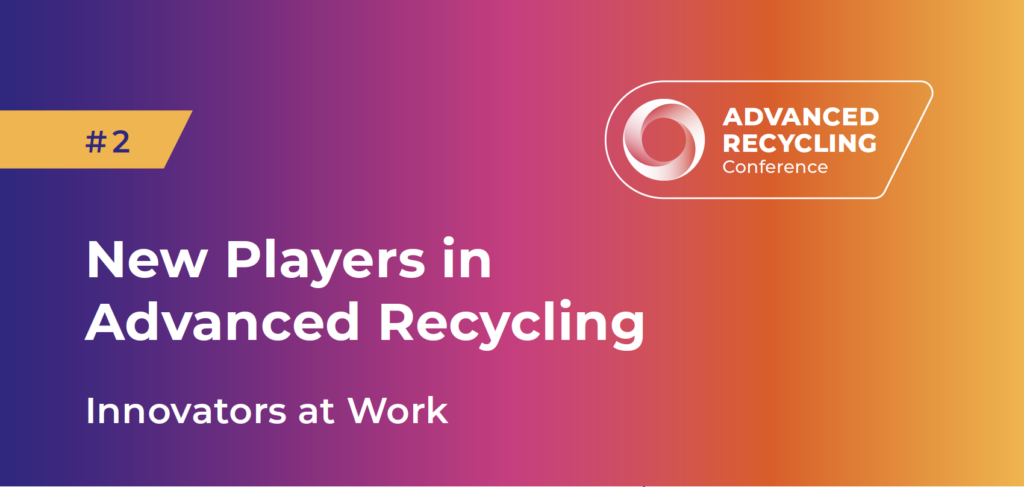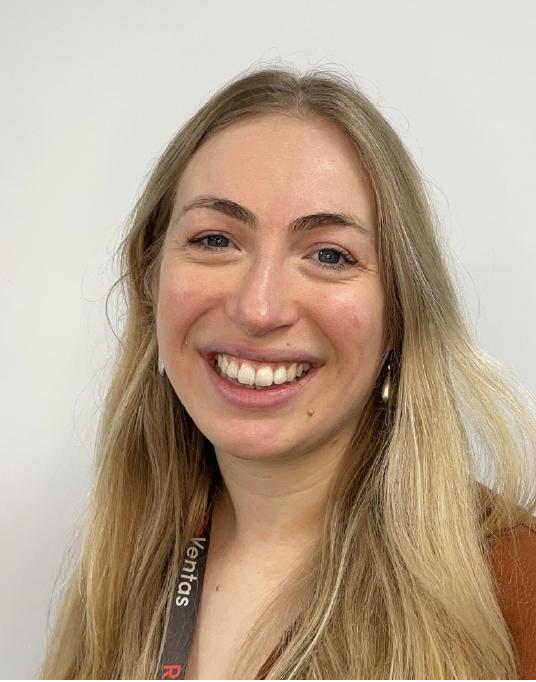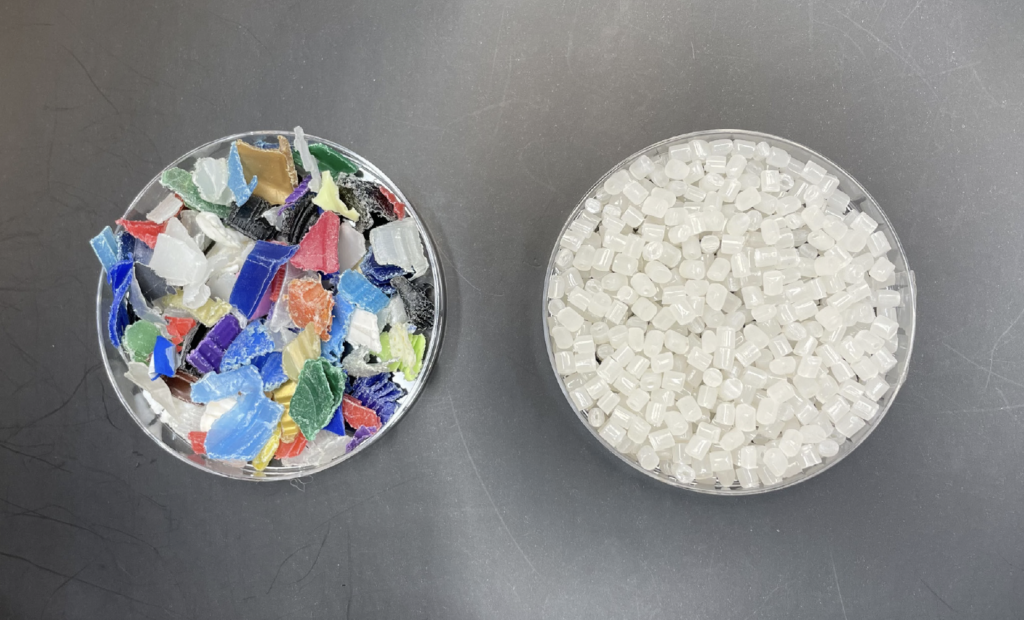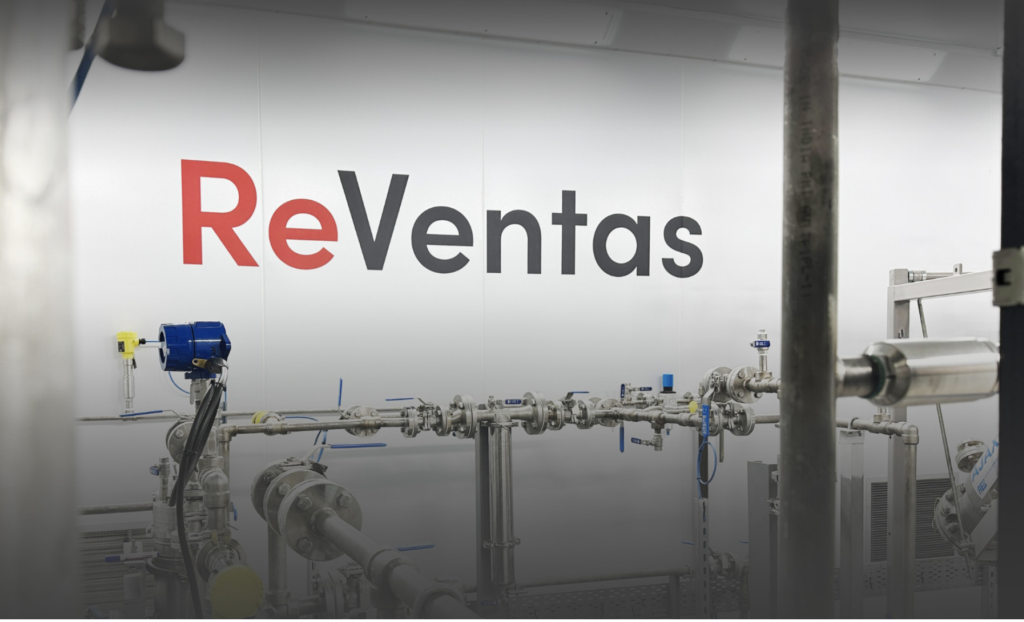
1. Innovation & Sustainability
How does the conversion of plastic into sustainable Polyethylene and Polypropylene resins contribute to sustainability, and can you share specific examples of projects where this has led to significant environmental benefits and waste reduction?

Emmeline Aves: There are several factors when considering the sustainability of PE and PP. We have to minimise the need for virgin polymers derived from fossil fuels, we then need to ensure we design new products with end of life in mind and finally consider the environmental footprint of how the waste is treated and its End of Life. For example, avoiding high environmental impact that can be generated through incineration or landfilling.
ReVentas’ mission is to deliver a low-carbon process that can return waste plastics at end of life back to a virgin-like state, which allows them to be reused in the application from which they came, whether that be food or consumer packaging, automotive and construction applications. This ensures we break the cycle of down-cycling plastics into lower and lower value applications that is inherent in mechanical recycling and that we deliver high-quality recyclate without the need for the polymer to be broken down to oil for reprocessing, minimising GHG emissions.
This philosophy is key to dissolution technologies such as ReVentas. A huge amount of energy and cost has gone into producing the long carbon chains that make up polymers, by retaining these chains whilst removing the contaminants and additives, ensures the plastic can be recycled at the lowest cost and GHG production.
Last year we completed a successful feasibility project to recycle single-use milk pouches, in conjunction with the Indian Plastics Pact. Discarded milk pouches is a specific issue in India, with an estimated 30,000 tonnes of waste milk pouches dumped in Pune alone in 2022. As you can imagine, one of the key challenges for thin films containing milk residue is odour. The ReVentas technology could not only remove all odour, but produce a virgin-like high quality PE pellet from this waste suitable for new packaging.
2. Breakthrough Technology in Action
What breakthrough technologies have you implemented to produce new sustainable Polyethylene and Polypropylene resins at scale, and how have these technologies improved both operational efficiency and environmental sustainability?
Emmeline Aves: The challenge to overcome when considering a solvent-based dissolution approach to plastic recycling is how to dissolve the polymers quickly, filter the contaminants and recover your solvent and polymer. ReVentas have developed a unique dissolution system which can dissolve polymers extremely quickly at low temperatures and pressures and which can work for high density rigid polymers as well as low density film polymers. This ensures plant size and solvent inventory are minimised along with the energy usage resulting in lower operating and capital cost.
By keeping the CAPEX and OPEX at a minimum, smaller plants can be built where the waste is generated. This ensures consistent feedstocks can be sourced whilst minimises transportation costs and impact.

3. Challenges & Opportunities
What were some of the biggest challenges you as a young enterprise faced in creating sustainable resins, and what opportunities have you identified in this niche that have driven your growth?
Emmeline Aves: ReVentas are currently in the scale-up phase of the technology, so access to funding to enable us to build and operate plants is our next big challenge. We have built a coalition of great partners to support us in these efforts, but we will continue to need to identify scaling partners as we look internationally to deploy ReVentas technology.
Early collaboration with future customers is also an area we’ve found extremely fruitful. By working with customers now, understanding their needs and requirements, allows us to feed that information back into our engineering and R&D teams to ensure we can deliver the product specification they need at scale.

4. Collaboration & Industry Dynamics
Considering your successful collaborations with companies like Amazon and Decathlon, what types of new collaborators or industry partners are you looking to engage with to further your mission, and how do these partnerships help advance the broader recycling and sustainability agenda?
Emmeline Aves: There is a wide range of companies we’re collaborating with, of course polymer producers looking to access our technology and product are one large group, as are brands and manufacturers looking to access our material. By engaging early with these companies, we can help guide their strategy going forward on recycling and recyclate sourcing as we move through the 2020s, and validate our material in their products, so we can be specified into their supply chains as our materials comes online.
5. Food Contact Approval
How keen are you about the performance of your technology in removing contaminants and recovering PE and PP with food contact approval?
Emmeline Aves: Food contact is going to be a key market for us going forward. The technology is being designed to deliver material of a suitable quality for food contact and we’re already working on validating this with the relevant agencies over the course of the next couple of years.
Source
nova-Institut GmbH, original text, 2024-09-20.
Supplier
Amazon.com
Decathlon
nova-Institut GmbH
ReVentas
Share
Renewable Carbon News – Daily Newsletter
Subscribe to our daily email newsletter – the world's leading newsletter on renewable materials and chemicals










